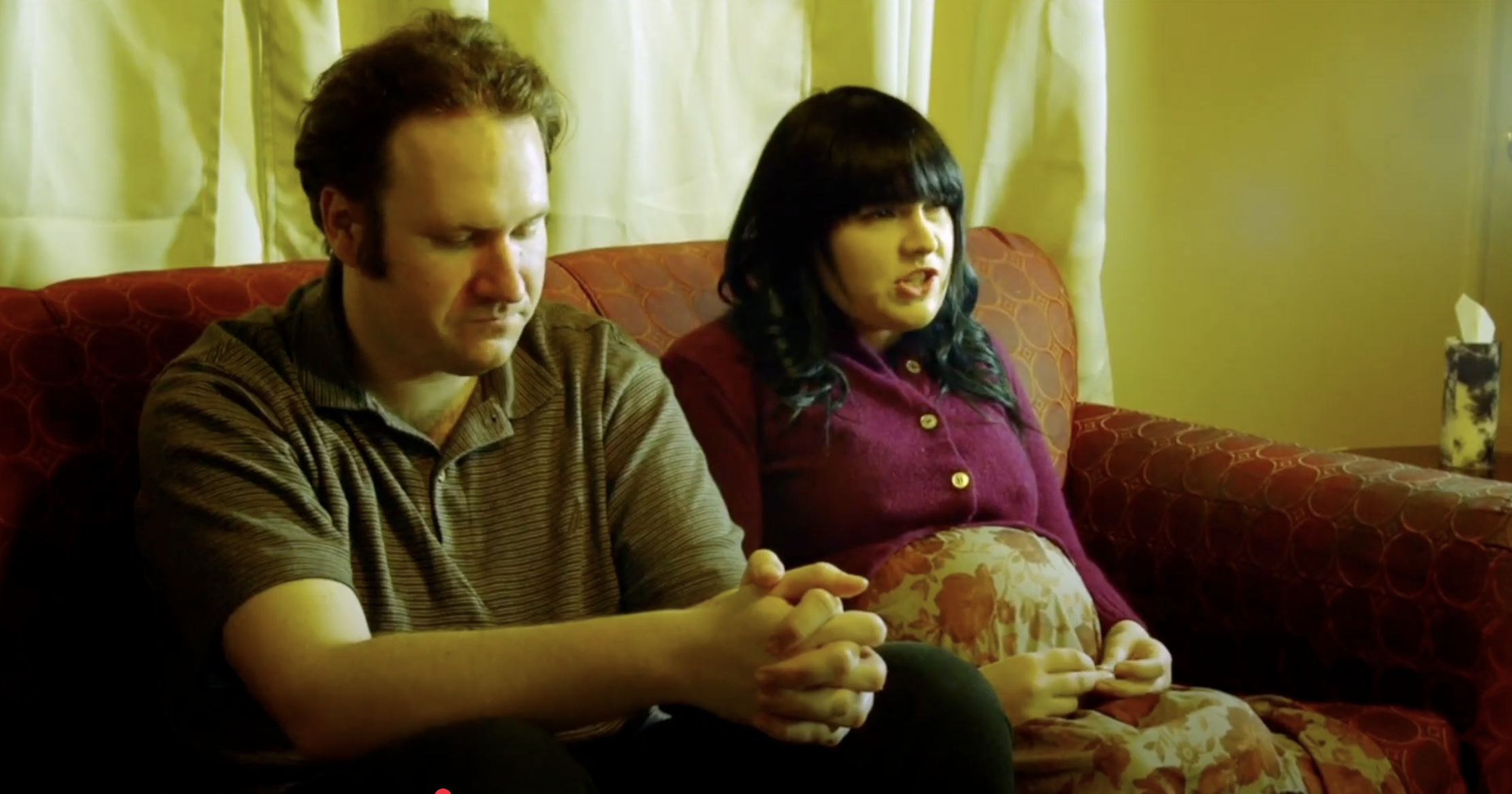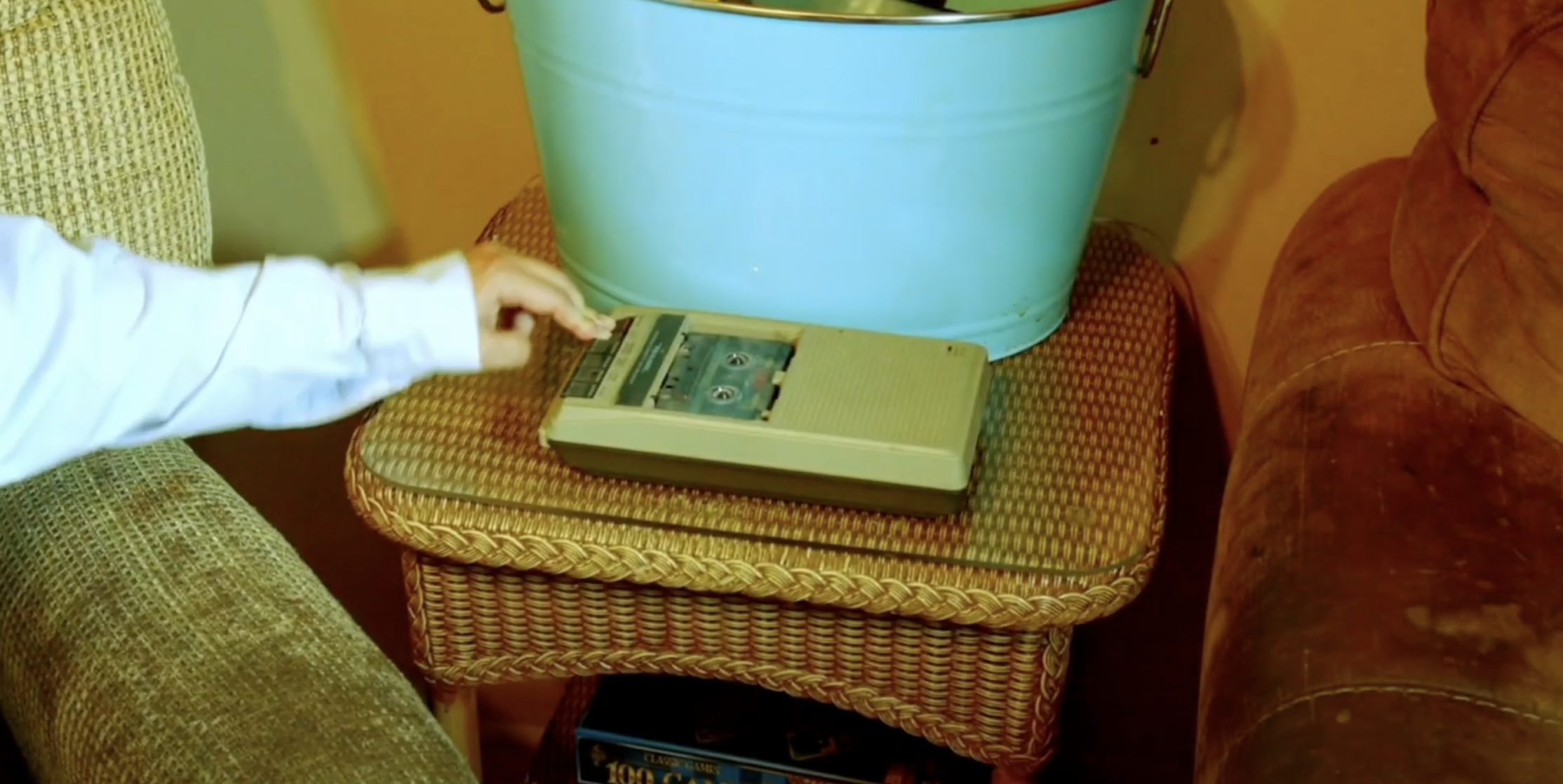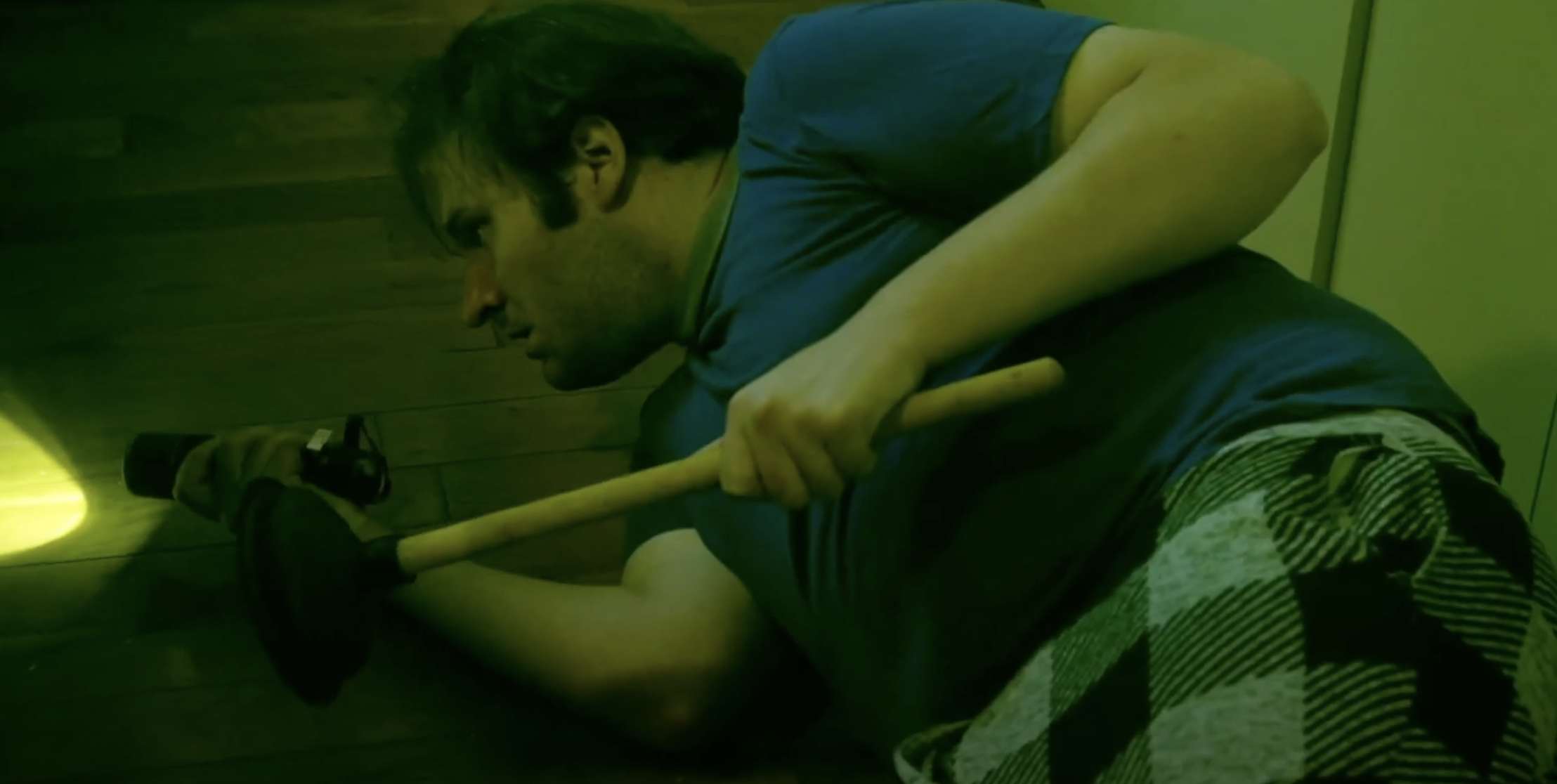Rob Roy’s Demon Spawn is not your typical horror film—it’s a bleak, unsettling dive into grief, trauma, and the thin veil separating faith from madness. At its core, the story follows Trevor (David Patrick Whittle) and Andrea (Michelle Middleton), a couple devastated by the stillbirth of their child. What begins as an intimate portrait of loss gradually mutates into something darker, as their desperate attempts to cope open the door to occult rituals, strange visitations, and the possibility of supernatural interference.
The first act grounds itself in raw emotion. Through intimate dialogue and strained silences, we watch Trevor and Andrea grapple with shattered expectations, financial sacrifices, and the lingering shadow of postpartum depression. Middleton’s performance is especially haunting: her portrayal of Andrea—slipping between grief, denial, and delusion—feels painfully real. A chilling early sequence, where she attempts to breastfeed their deceased child, is both heartbreaking and terrifying, setting the tone for the psychological collapse to come.
The film’s shift into horror is gradual but relentless. Strange symbols, whispered legends of a “street witch,” and unnerving coincidences suggest something larger than personal tragedy at play. Supporting roles—Aaron Crocker as the weary therapist, Carrie Moore as the skeptical detective, and Mindy Urbani as the witch tied to the house’s history—add texture, showing how outsiders struggle to interpret the couple’s unraveling.
Visually, Demon Spawn leans into stark contrasts: quiet domestic scenes suddenly disrupted by surreal imagery and ritualistic overtones. Roy’s direction keeps the audience off balance, never fully clarifying whether the horrors stem from supernatural forces or the couple’s fractured minds. This ambiguity is the film’s greatest strength, forcing viewers to confront how trauma distorts perception.
Still, the movie is not without flaws. Its pacing occasionally falters—some therapy and detective scenes linger longer than necessary—and the ending, though suitably grim, may frustrate those hoping for clear answers. But in many ways, that lack of resolution mirrors the experience of grief itself: messy, unresolved, and deeply unsettling.
Ultimately, Demon Spawn is less about demons than it is about the ones we create in the aftermath of tragedy. It’s a harrowing watch, bolstered by strong performances and an unflinching willingness to explore subjects horror rarely tackles with such seriousness. For viewers willing to endure its darkness, it delivers a memorable, gut-punch experience.
Jessie Hobson




